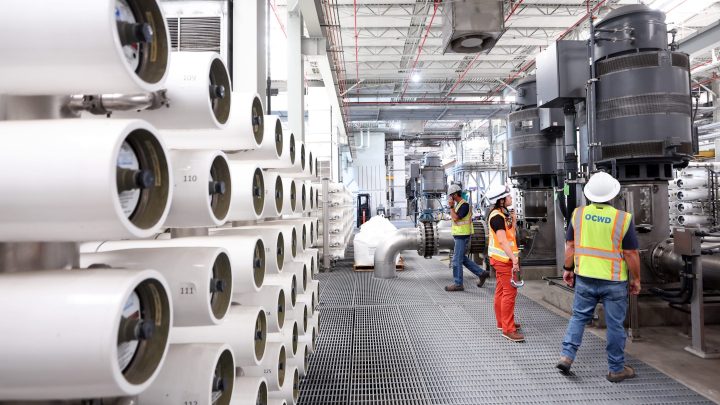
With many water workers nearing retirement, utilities seek a younger workforce
With many water workers nearing retirement, utilities seek a younger workforce

Beyond the challenge of how to supply water to fast-growing communities, there’s also growing concern about the human infrastructure these systems require. The silver tsunami that’s hitting construction and manufacturing across the country is also affecting utilities, where trained water and wastewater operators are critical. In response, the industry and its partners have created a number of initiatives to recruit young people — some still in high school — to work in water.
Many U.S. water workers entered the profession after the Clean Water Act became law back in the 1970s. But a third will exit in the next decade or so, according to the Environmental Protection Agency.
“They’re retiring in large numbers all at the same time,” said George Hawkins with the water utility adviser group Moonshot Missions. He added that the labor shortage is playing out for utilities large and small.
“We’re in Washington, D.C., but we’re competing with Amazon, and small towns will say, ‘How do we get this kind of talent to come back to our town?’”
The notion that you actually have to recruit for these kinds of jobs is a new one, said Justin Rackley, a Texas water expert with engineering firm Garver.
“That pipeline didn’t exist at all. It was just word of mouth,” he said. “There’s a lot of familiar last names at these utilities, it’s just kind of a family business.”
Nowadays, it’s not just about recruiting, but recruiting early.
“If you’re not meeting with high schoolers until after they graduate, you’re too late,” Rackley said.
A new law in Texas allows high schoolers to get provisional licenses for these jobs and learn to monitor and treat drinking water and wastewater.
And in northwest Ohio, the EPA is footing the bill for a new course called Water Treatment Professions at Owens Community College. Professor Mary Kaczinski will teach the first cohort.
“I’ve had a few emails from students who are very interested and very kind of worried about it — ‘I want to make sure I get a spot,'” she said.
These training programs address a high-stakes problem.
“We will experience a lot of water insecurity without a robust water workforce,” said Sarah Schlessinger, CEO of the Texas Water Foundation.
Especially in states like Texas, where population growth is running up against aging infrastructure.
There’s a lot happening in the world. Through it all, Marketplace is here for you.
You rely on Marketplace to break down the world’s events and tell you how it affects you in a fact-based, approachable way. We rely on your financial support to keep making that possible.
Your donation today powers the independent journalism that you rely on. For just $5/month, you can help sustain Marketplace so we can keep reporting on the things that matter to you.

















